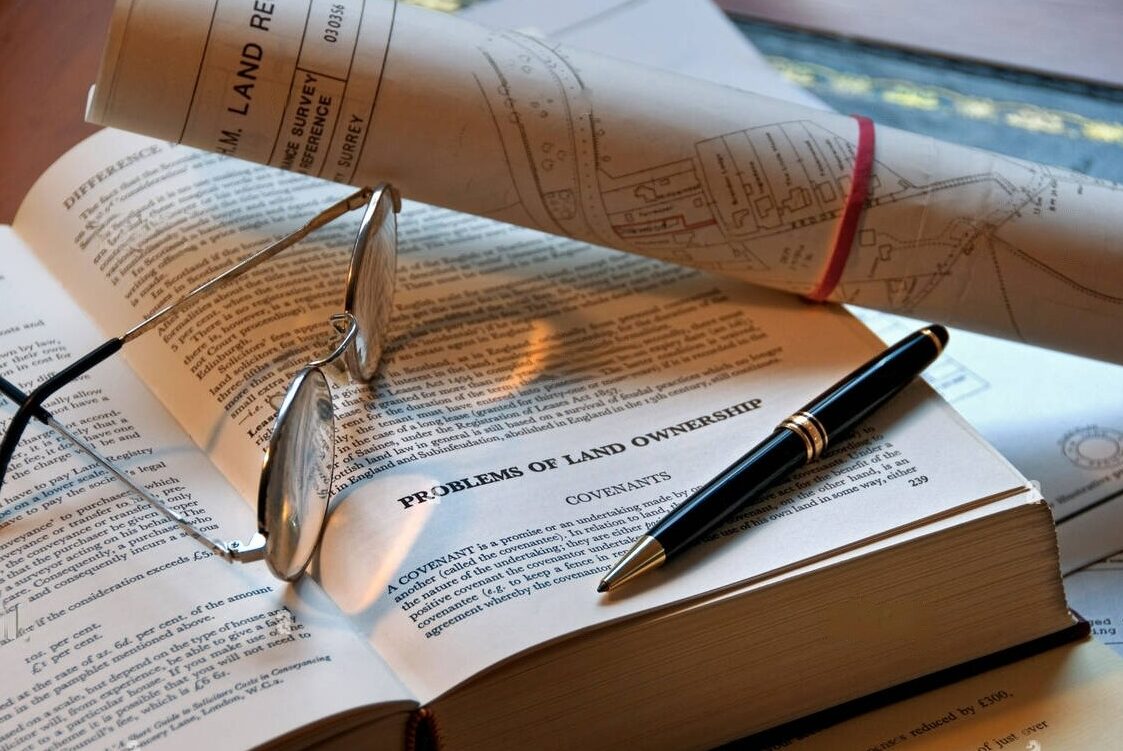Redressing Record-of-Rights Dispute by Establishing Land Survey Appellate Tribunal

Record-of-Rights, a term related to immovable property, is locally known as ‘‘Khatian’’ or “Porcha”. In Bangladeshi laws that address land-related issues, the record of rights has not been precisely defined anywhere. On the other hand, academics and judges have tried to define it. Sir Henry Maine defined a record-of-rights as a comprehensive list of all land rights that is produced on a regular basis by the functionary in charge of establishing the claims of the government for its portions of the rental. Maine’s definition further includes that although it does not provide a title, it does give rise to a presumption in its favor that lasts until its accuracy is successfully contested. It is described as a public document by Justice Kazi Ebadul Hoque that was prepared after performing surveys and including information about a piece of land [Kazi Ebadul Hoque, Gradual Development of Land Laws and Land Administration, Bangla Academy, Dhaka, 2000, at page 353]. In most cases, it is made with the objective of determining possession, ownership, and calculating the amount of Land Development Tax.
The Bengal Tenancy Act of 1885 and the Sylhet Tenancy Act of 1936 were the two statutes that were used during the British era to establish what is now the Record of Rights. The State Acquisition and Tenancy Act of 1950 (hereinafter referred to as SAT Act) allowed the government to acquire the landowners’ rent-receiving rights after the Zamindari System was abolished in 1950. The specific steps for preparing and revising the record of rights are laid out in these three Acts. There were CS, SA, RS, and other varieties of Khatian in the past. The government may, however, order the preparation or revision of the Record-of-Rights in any region of the nation, according to Section 144 of the SAT Act. The Bangladesh Survey or Revisional Survey is the name of the Record of Rights prepared in accordance with this section. The collector is responsible for maintaining, preparing, or updating the record of rights in accordance with the SAT Act.
The Tenancy Rules, 1955 require that a draft Record-of-Rights be published in the manner specified once any Record-of-Rights has been prepared or revised. One may object and ask for a correction in accordance with rules 30-44, but only before the final publication of the Record-of-Rights in the official gazette. It is presumed accurate once it has finally been published according to the law, and the civil court’s jurisdiction is no longer applicable with regard to any orders directing the preparation or revision of a record of rights made under Chapter XVII, or with regard to the framing, publication, signing, or attestation of such a record or any portion of it, as provided for in sections 144A and 144B of the SAT Act, respectively.
Chapter XVIIA of the SAT Act was added in 2004 to include the Land Survey Tribunal and Land Survey Appellate Tribunal. People used to rectify their Record-of-Rights by instituting title suits and submitting the verdicts to the AC Land for the correction prior to the addition of this Chapter and the creation of the Land Survey Tribunal. However, through the amendment of the Act, the power to establish Land Survey Tribunal and Land Survey Appellate Tribunal, have been given to the govt. under sections 145A and 145B. According to these sections, the government may use this power to establish the Land Survey Tribunal and Land Survey Appellate Tribunal by publishing a notification in the official Gazette.
Joint District Judges have been designated as judges of the Land Survey Tribunal under the 2004 amendment to the SAT Act, and those who are or have served as judges of the High Court Division of the Supreme Court have been designated as judges of the Land Survey Appellate Tribunal. Unfortunately, because the government failed to establish a Land Survey Appellate Tribunal via official Gazette, there was no place to appeal any orders or decrees made by the Land Survey Tribunal.
The aggrieved party could move to the HCD by claiming writ jurisdiction for the requisite orders because this legal vacuum did not offer an equally efficacious remedy to the party. The people from far-off regions were unable to take advantage of this opportunity because moving to HCD required both time and money. The government further revised section 145B of the SAT Act in 2023, which specifies that District Judges serve as Judges of the Land Survey Appellate Tribunal. In addition to this, newly added sub-section 3C of section 145B provides that the government has the power to appoint one or more Additional District Judges to hear appeals from the Land Survey Tribunal. However, Additional District Judges as judge of the Land Survey Appellate Tribunal shall entertain those appeals which are transferred by the judge of the Land Survey Appellate Tribunal appointed or empowered under this section.
This appointment of Additional District Judges as judge of the Land Survey Appellate Tribunal will hopefully reduce the workload of the District Judges and at the same time will increase the power of the Land Survey Appellate Tribunal to dispose of the appeals. This amendment was made in consideration of the needs of the people as a whole. According to the change to the SAT Act, the Land Survey Appellate Tribunal’s decision is final. On top of that, very recently the government has established Land Survey Appellate Tribunals in 54 Districts via an official Gazette.
The right to hold, acquire, transfer, and dispose of property is guaranteed by Article 42 of the Bangladesh Constitution. However, it is required to give the most recent Khatian of the property under the statutory law for the transfer or sale of land. Otherwise, the sale instrument shall not be registered by the registering officer in compliance with section 52A of the Registration Act of 1908. Even, a non-registered instrument is restricted to qualify under Section 49 from creating, declaring, assigning, limiting, or extinguishing any right, title, or interest, whether vested or contingent, to or in immovable property, whether in the present or in the future. This undermines a person’s constitutional right to property if the record of rights is wrongly prepared or revised.
This means that in order to use, sell, or otherwise alienate the property, a valid Record-of-Rights is required. The person can go to the applicable Tribunal to have it corrected if the preparation or revision of any Record-of-Rights results in the wrongful or illegal removal or entry of the name of any landowner in the list. The appropriate operation of the Land Survey Tribunal and Land Survey Appellate Tribunal is necessary for righting the wrong. The Land Survey Appellate Tribunal, which has recently been established by the government by notification in the official Gazette, is expected to fill in the gaps and guarantee access to present an appeal to the proper forums.

Soeb Aktar1 Posts
The author is an LLM candidate at the University of Dhaka. He is currently working as an Editor at the Dhaka University Law and Politics Review.


0 Comments